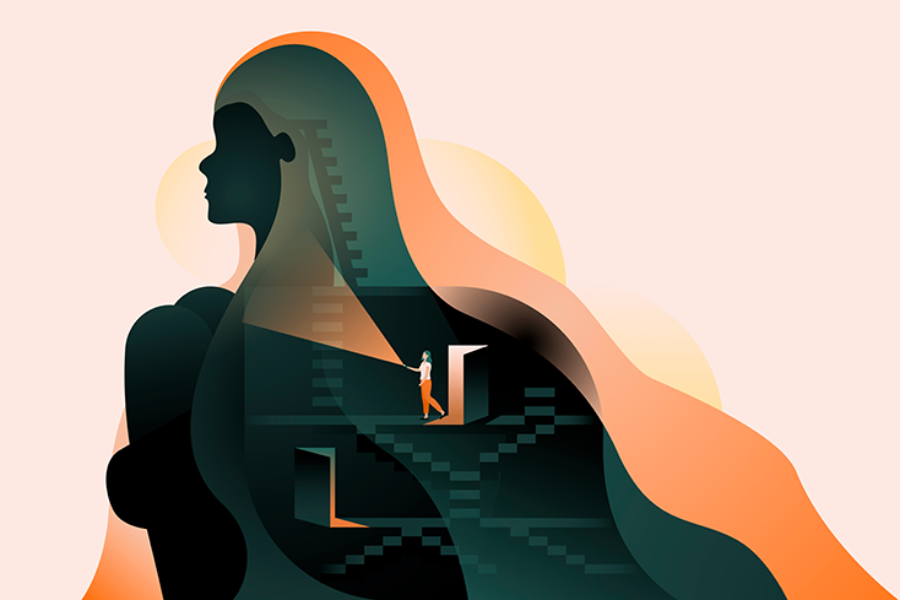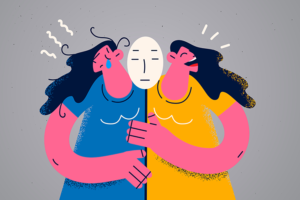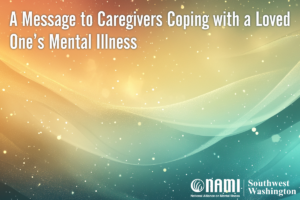By Cindy Tillory
I’m at a point in my recovery where I feel more comfortable in my thoughts and behaviors. I understand my health and my needs — and I have a more relaxed attitude toward life. But this wasn’t always the case.
In 2012, I was struggling. I had lost my mother a year before, and I wasn’t handling the loss well. I needed to be hospitalized and was put under psychiatric evaluation for six months.
As I look back on my mental health journey, I often think about the many roadblocks I could have avoided if I had simply known a few basic truths and tips. These are a few truths I learned on my road to recovery.
1. It’s Not Your Fault
Self-blame is a problem for many of us living with mental illness — I have dealt with it often. This tendency, I learned in cognitive behavioral therapy (CBT), is a common cognitive distortion — a thought pattern that is often inaccurate and negatively biased.
My thought pattern manifested in me blaming myself whenever anything went wrong. Yes, there were things that may have been within my control that had been mismanaged, but most things I blamed myself for— namely, my mental illness and accompanying symptoms — weren’t the same as what I could actually control.
Now, I am careful to analyze distressing situations as they arise, determining if the circumstances are something I can control. I have come to understand that I can control my own actions and responses, but I cannot control external events or hold myself responsible for others’ feelings and actions.
2. Not Everything Is Good Or Bad
Throughout my mental health journey, I battled another cognitive distortion: black-and-white thinking. When I would engage in black-and-white thinking, I could only interpret events in extremes; I believed that everyone and everything fell into two different categories, Good and Bad. Thinking this way forced me to divide my world and miss out on the nuances of life and the complexities of people. &
I saw everyone as either a “good guy” or “bad guy” — and in the depths of my mental illness, I could only see certain people as the enemy. This often put me in a victim mindset, and I would make decisions and act out of fear and perceived danger. Thankfully my time spent in therapy has broken down that barrier and has allowed me to see that in the end, people are just people, and not everything is good or bad.
3. Recovery Is A Group Effort
Perhaps the most important lesson I learned is that treatment can be most effective when it is a collaborative process. You and your mental health professionals are a team. At the beginning of my journey, I simply took the medication that was given to me by my medical providers. I was never an active participant in my treatment.
I never spoke up about negative side effects of medications or articulated my goals for recovery. As a result, I didn’t see the outcomes I wanted, so I would stop taking my medication. Slowly, my condition would deteriorate even further. I often lied to my doctors and told them I was taking the medication, rather than admitting that the side effects had become too much to handle. I seemed outwardly compliant, but I was harming myself by not voicing my concerns.
Once I started to be honest with my doctor, we adjusted my medication to find a better fit. This, combined with regular therapy got me closer to the current point in my recovery. I wish I could tell my younger self that she could speak up at any time, ask questions and advocate for herself. Always remember: You are the priority in your own treatment.
4. You Are Not Defined By Your Work Or Productivity
I believe that there is dignity in working and accomplishing tasks. And, like most of us, I was raised in a culture that valued hard work and success. But I have also learned that managing my energy — when I have too much or too little — is a critical part of my recovery. Self-care and productivity, I’ve learned, can coexist in a healthy balance.
To find this balance, I had to recognize that I had a bad habit of tying my productivity and my accomplishments to my self-worth. When I would have a busy or productive day, I felt more “useful” and considered myself “good”— somehow superior to the person I was on the days when I didn’t do anything. However, the height of my “productivity” occurred during my manic episodes — it was never focused or sustainable.
Now, I understand that I am not “better” when I am manic. I am better when I allow myself to rest and find consistent, healthy habits.
5. Creativity Can Be Lifesaving
I love the arts. Drawing and painting were always my favorite classes in high school. There’s something magical about creating art — and it has always helped me to limit my symptoms. The process of creating art has also alleviated much of my social anxiety — a phenomenon that is backed by research. Early on in my mental health journey, I remember that I first found relief in art therapy groups. Even on my darker days, art provided a bright spot.
Now, I try to work art projects into my self-care routine. I schedule at least an hour each week for creating. My work doesn’t have to be perfect — no painting ever is. It simply needs to fill me with joy, excitement and gratitude.
Since receiving my first diagnosis, I have made leaps and bounds in my self-awareness and recovery. The people I have met, and the changes I have made to my life, have allowed me to be a more caring, informed and well-rounded individual. Through therapy and self-care, I have become a person empowered to make her own choices in life.
Cindy Tillory is a mental health advocate and peer support specialist in sunny, southern California. She loves to cook, create art, write and read. In her off time, she writes a blog and cares for her houseplants.




